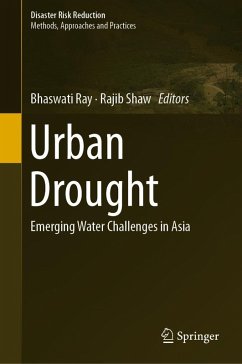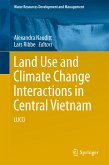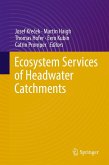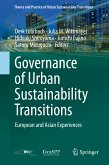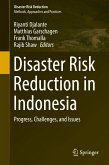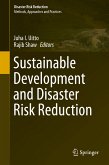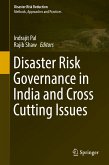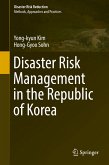This book presents water insecurity issues in urban areas while developing a water security index and explores the innovative approaches to water development and management with examples from Asian cities. The urban water crisis is a global phenomenon, but it is more obvious in the megacities of the developing world. Urban drought, although not a familiar term, will pose a significant threat to humankind in the near future, especially in the context of increasing population in cities. Many cities are already unable to provide safe, clean water for their citizens. Some of the world's largest cities depend heavily on groundwater for their water supply. It is unlikely that dependence on aquifers, which take many years to recharge, will be sustainable. As urban populations grow, water use will need to shift from agriculture to municipal and industrial uses, making decisions about allocating between different sectors difficult.
Inefficient water-use practices by households and industries, fragmented management of water between sectors and institutions, climate-induced water shortages, environmental degradation of water sources, and inadequate use of alternate sources are also issues of major concern. Despite recent advances in the literature, there exists a considerable gap in attempting an integrated water-resource management approach.
Covering all aspects of urban drought and water insecurity, this book is a valuable resource for students, researchers, academics, policy makers, and development practitioners.
Dieser Download kann aus rechtlichen Gründen nur mit Rechnungsadresse in A, B, BG, CY, CZ, D, DK, EW, E, FIN, F, GR, HR, H, IRL, I, LT, L, LR, M, NL, PL, P, R, S, SLO, SK ausgeliefert werden.
Es gelten unsere Allgemeinen Geschäftsbedingungen: www.buecher.de/agb
Impressum
www.buecher.de ist ein Internetauftritt der buecher.de internetstores GmbH
Geschäftsführung: Monica Sawhney | Roland Kölbl | Günter Hilger
Sitz der Gesellschaft: Batheyer Straße 115 - 117, 58099 Hagen
Postanschrift: Bürgermeister-Wegele-Str. 12, 86167 Augsburg
Amtsgericht Hagen HRB 13257
Steuernummer: 321/5800/1497
USt-IdNr: DE450055826
Bitte wählen Sie Ihr Anliegen aus.
Rechnungen
Retourenschein anfordern
Bestellstatus
Storno

